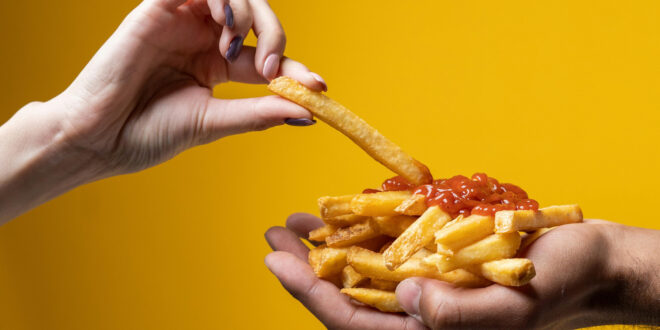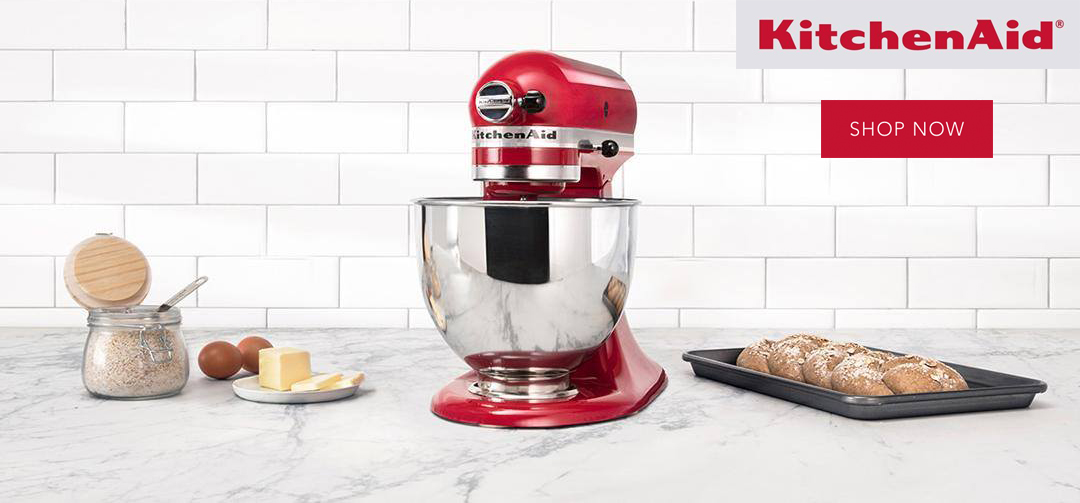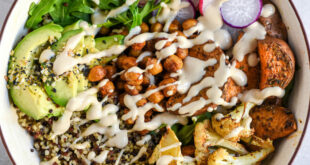“My name is Helen, and I’m a carboholic.” If this statement sounds ominously like something out of an Alcoholics’ Anonymous meeting, it’s supposed to. For an estimated 12% of children and 14% of adults (including me), ultra-processed food is highly addictive. Sure, many people describe themselves as having a ‘sweet tooth,’ but this is not what we’re talking about.
The symptoms of true addiction are much the same, regardless of what the addictive substance is. They include uncontrollable cravings (the sort not just hard to resist, but in many cases, impossible), the continued use of the addictive substances, even when the user is aware of the detrimental effect this has on them, and painful withdrawal symptoms when they do manage to move away from the substance. All of which I can vouch for.
I’ve been aware of my addiction to refined carbohydrates all my life. The list of diets I’ve been on in order to shed the resulting weight gain, number in the double digits, and the lengths I’ve gone to in order to support my ‘habit’ have been extreme. They have included lying, eating in secret, hiding food supplies, taking food belonging to others, binge eating, packing extra food to eat after meals when staying with others, and spending an unacceptable portion of my income on obtaining my ‘fix’. These are not behaviours I’m proud of – but all of them were out of my control, and many felt necessary if I was to continue functioning in the moment (extreme feelings of hunger can mean it’s difficult to concentrate on anything else, including work or family life).
Such was my addiction to refined carbohydrate, even magazine photos of fresh bread or cake would stay in my mind for days, or trigger an immediate purchase of something similar. Casual conversation about such foods would occupy my thoughts and have me seeking them out at the first opportunity. I was the sort of person who would sit at a table with others, and break out into a sweat at the sight of left over slices of pizza. At a birthday party, I would fixate on the last portions of cake, mystified as to why no one else seemed to be paying them any attention. Refined carbohydrate dominated my waking life and often infiltrated my dreams. It was not uncommon for me to get up in the night to find something sweet or bread-based to eat before I was able to return to sleep. Most painful of all, was I felt completely alone with my addiction.
It was only when I reached my 60s, and knew my insatiable cravings could soon lead to type two diabetes and other serious health problems, that I set out to do my own research on the subject. That’s when I discovered I wasn’t actually alone, and there were clear explanations as to why I was struggling with what experts now call UPF (ultra-processed food) addiction. This knowledge has completely changed my life. It has not only helped me to maintain a healthy weight, but it has freed me from a debilitating and obsessive interest in refined carbohydrates, introduced me to delicious new recipes, and (because I am, and always will be, a ‘big eater,’) allowed me to eat the portion sizes I feel happy with, without harming my health.
Not everyone struggles with refined carbohydrate addiction, but many, many people wish they could be satisfied with far fewer refined carbs than they currently consume. Whether you or someone you love (be it a partner, friend, adult child, or grandchild) is currently addicted to refined carbohydrates, or you simply want to cut back on refined carbs for the good of your health, lookout for our forthcoming articles on the subject. We’ll be discussing exactly what refined carbs are, why we’re so attracted to them, how they interact with our metabolic system, and how we can quit them while still enjoying a wide range of delicious sweet and savoury foods, and satisfying beverages. They’re subjects we all need to educate ourselves about.










Ann - 4 months ago
Thank you for your article. I think there will be many people who will identify with your problem, including me. Many of us will have been brought up on a high carb diet with refined flour and sugar and sometimes not a lot of meat or vegetables. Bread was cheap and helped to fill us up. It has only been the last 40 years that we have learnt more about our problems and ways to help us. This isn’t easy and I have found that when under extra stress, I fall back into my bad habits. Exercise does help. Getting out for a walk in the park and regular swimming is what I try to do.